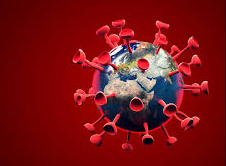(单词翻译:单击)
中英文本
When the U.S. death toll from COVID-19 had not quite reached a thousand and New Yorkers like me were three days into our governor's stay-at-home order, I phoned Morse to see how he was holding up. He teaches epidemiology at Columbia University Mailman School of Public Health and is now in the age range of those most vulnerable to the worst ravages of the coronavirus. (I am too.) He and his wife were self-quarantining in their Manhattan apartment, just a few miles from mine.
在COVID-19于美国造成的死亡人数尚未达到1000人、我们纽约居民因为州长的居家令而待在家第三天时,我打电话给莫尔斯问候他的情况。他现在于哥伦比亚大学梅尔曼公卫学院教授流行病学。他现在的年龄段是最容易受到冠状病毒攻击的。(我也是)。他和妻子在曼哈顿的公寓进行居家隔离,离我的公寓只有几公里远。
"I'm discouraged, yes, to find we're not better prepared after all this, and we're still deep in denial," Morse said. He went straight to a favorite quote, from management guru Peter Drucker, who once was asked, "What is the worst mistake you could make?" His answer, according to Morse: "To be prematurely right."
“是的,看到在这么多研究和警告后,我们还是没有准备好,而且还是不肯接受现实,这令人很沮丧。”他接着引用了管理学大师彼得·德鲁克的名言中他最喜欢的一句。德鲁克曾被问到:“你犯过最糟的错误是什么?”根据莫尔斯所述,德鲁克的回答是:“太早料中未来。”

Morse and I weren't right, prematurely or otherwise. Nobody was. When I was asked on my book tour what the next pandemic would be, I said most of my expert sources believed it would be influenza. "I never liked lists," Morse told me during our call; he said he always knew the next plague could come from anywhere. But in the early 1990s he and his colleagues tended to focus on influenza, so I did too. Maybe that was a mistake; if the next pandemic was going to be influenza, that didn't strike most as especially shattering. The flu? People get that every year. We have a vaccine for that.
不论是否太早,莫尔斯和我都没料中未来。没有人料到。曾有人在我的新书活动上问我下一次的大流行病会是什么,我说我认识的多数专家都认为会是流感。莫尔斯在我们通话时告诉我:“我从不喜欢列清单。”他说他一直认为下一次瘟疫可能来自世界任何地方。但在20世纪90年代初期,他和同事主要关注流感,因此我也是。或许那是个错误;如果下一次的大流行病是流感,这对大多数人并不是特别吓人的消息。流感?大家每年都在得。我们有疫苗可以预防。
So maybe the warnings were too easy to dismiss as "just the flu" or as the catastrophic thinking of one overwrought writer. But other journalists were writing similar books, and some of them were huge best sellers, like The Hot Zone, by Richard Preston, and The Coming Plague, by Laurie Garrett, which came out the year after mine. (Other more recent books include Spillover, David Quammen's follow-up to a story on zoonotic diseases that he wrote for National Geographic in 2007.) All of us described the same dire scenarios, the same war games, the same cries of being woefully unprepared. Why wasn't any of that enough?
因此,或许这些警告太容易被斥为“仅仅是流感”,或者是一位过度紧张的作家的灾难性想法。但是其他记者也在写类似主题的著作,有些还是超级畅销书,例如理查德·普雷斯顿的《伊波拉浩劫》,以及劳里·加勒特晚我一年出版的《逼近的瘟疫》。(其他近期的书则有戴维·夸曼的《下一场人类大瘟疫》,是他2007年的《国家地理》杂志人畜共通传染病报道的后续作品。)我们都描述了同样严峻的可能情境、同样的疫情预演,也同样对于我们的毫无准备提出大声警告。为什么这一切还不足以令人警惕?
重点讲解
1.death toll 死亡人数
The death toll was initially reported at around 250, but was later revised to 300.
最初报道死亡人数约250,后修订为300。
2.How are you holding up 你的状况还好吗
How are you holding up?
你的状况还好吗?
3.vulnerable to 易受...的侵害
Those most vulnerable to heat stress are the elderly.
上了年纪的人最容易因受热而生病。


